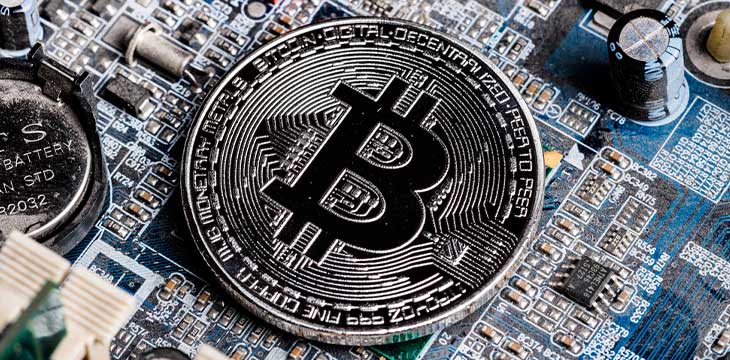|
Getting your Trinity Audio player ready...
|
Mississippi’s lawmakers have passed a bill to protect digital currency miners following a majority vote on February 9. The Digital Asset Mining Protection Act confers legality on mining activities within the allotted zones in the state.
The proposed legislation, spearheaded by Senator Josh Harkins (R), would prevent the Public Service Commission from giving miners arbitrary electricity rates, a move which has elicited positive reactions from the mining community. While mining in the state of Mississippi is not illegal, miners have been grappling with unfavorable regulatory control leading to the imposition of steep fines for rule violations.
“It shall be legal in the State of Mississippi to run a node for the purpose of home digital asset mining and operate a digital asset mining business,” read the bill’s provisions.
Bryan Daugherty, the Public Policy Director for BSV Blockchain, explains that the Digital Asset Mining Protection Act is “aimed at protecting the rights of digital asset miners, both individuals as well as mining companies.”
“The bill outlines legal protections for individuals as well as businesses engaging in operating a digital asset mining business. The bill provides an exemption for miners from being considered money transmitters under the Mississippi Money Transmitters Act, a long-sought clarification. The bill also specifies that political subdivisions cannot impose additional restrictions or requirements on digital asset mining businesses that are not also imposed on data centers and further ensures that digital asset mining businesses are not subjected to discriminatory electricity rates. Additionally, the bill creates the Mississippi Digital Asset Mining Council to advise and support the development of the digital asset mining industry in the state,” Daugherty tells CoinGeek.
According to the bill’s wording, digital asset mining operations can be carried out from residential areas, provided it complies with the existing noise limits. Regulatory agents are also prohibited from changing the zoning of a mining operation without giving operators clear warnings and the right to appeal.
The decision of the legislators to pass the bill hinges on several findings, including the potential of digital asset mining to “stabilize the power grid and provide revenue for infrastructure projects across the state.” Other factors include the rise of the industry since China’s mining ban in 2021 and the myriad regulatory challenges the local mining industry faces.
“Digital asset mining has created thousands of jobs and provided billions of dollars worth of positive economic value for individuals and companies throughout the United States,” read the bill.
Daugherty said, “All in all, this is a great step forward for the mining industry and will furthermore provide data and research on which protocol is the most efficient.”
The mining industry looks up to Mississippi
Mississippi has been targeted by several pro-block reward mining groups seeking to influence the government to support digital mining in the state. The Satoshi Action Fund (SAF) activity is a keen example of the group pushing for reducing the tax burden faced by Mississippi’s miners.
“We believe that Bitcoin mining is being unfairly targeted and double taxed by the IRS (Internal Revenue Service) currently,” said Dennis Porter, CEO of SAF.
While Mississippi inches towards being a safe haven for miners, other states in the U.S. are not faring so well. Miners in New York are facing a torrid patch following the imposition of a two-year mining moratorium on Proof-of-Work (PoW) assets as critics raise the alarm over the environmental impacts of mining activities.
Watch: Law & Order: Regulatory Compliance for Blockchain & Digital Assets

 02-17-2026
02-17-2026 




